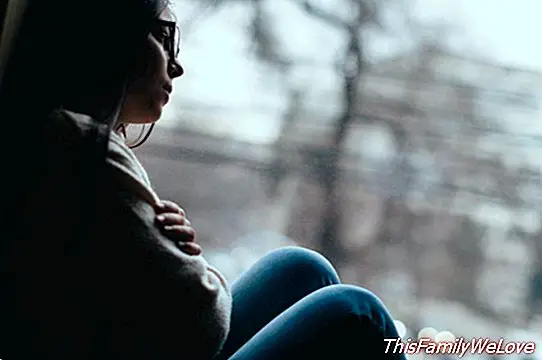Depression, one of the most widespread disabilities in the world

Sadness is one of the worst feelings a person can go through. Plunging into this deep state and feeling unattractive about anything is a terrible thing that ends up affecting the daily life of people as any other physical problem such as the breaking of a leg could do. In fact, the depression It is cataloged as one of the most widespread disabilities in the world.
This is indicated by the World Health Organization, who warns of the increase of cases of disorders depressive in recent years. A problem that grows every day and that causes the rhythm of life to be altered in a way that makes people unable to get ahead without the help of a professional.
Growth of 18.4%
The data that is handled indicate an increase in 18,4% of people who have depressive disorders since 2015. In recent years, there have been a total of 322 million people with this type of problem, which has resulted in a shocking production as it is estimated at 1 billion annual dollars losses due to this disease.
The groups that are most affected by depression are the women (especially during pregnancy and postpartum), young boys and the elderly. There is also a large number of retirees who have these problems. In short, the common pattern in cases of this disease is to face stages of changes in life. Situations in which people become weaker emotionally and vulnerable.
"When we lose our job or lose our partner we become weaker, more subject to physical illnesses and disorders such as depression become more common," explains the doctor. Dan Chisholm, from the WHO Department of Mental Health and Substance Abuse.
Detect depression
As has been said, adolescents are one of the groups that are most affected by depression. Therefore, it is necessary to try to find it in time to start treating it as soon as possible as in any disease, gaining time is very important to achieve success in the cure:
- Irritability, anything bothers him and therefore he has serious anger-Sadness, frequent and repeated crying over the days.
- Feelings of uselessness, the teenager thinks it is useless.
- He does not laugh so much anymore With what he used to do before and his attitude towards the activities that he used to like, he has taken a negative tone.
- Regular tiredness, even when he sleeps the necessary hours.
- It does not happen that much time with your friends, he retires into his world and avoids going out with his friends.
- You throw the guilt of all the bad things that happen at home.
- He complains that he painful areas of the body and there is no medical evidence of problems.
- Suddenly starts to take off bad grades and have difficulties for
to concentrate.
- Less appetite. It can also happen on the contrary as many teenagers find comfort in food.
If any of these symptoms are observed, the parents will first have to talk to the adolescent. Find a moment in which to sit down with him and explain that he will always find support in the family, with whom he can vent and tell all his feelings. It is also convenient to remind him that he is not to blame for the ills that happen around him and that he can not live with that feeling.
The next step will be to make an appointment with a specialist so that this is the one who speaks with the child and see to what extent the adolescent is affected by this depression. It will be this doctor who decides the correct treatment, and the sooner this begins, the less complicated this problem will be and the less negative it will have on the young person's life.
This treatment will depend on the adolescent's age, the number of symptoms present and whether or not there has been a family history. The drugs that are used to treat these problems are usually the SSRI type antidepressants, selective inhibitors of serotonin reuptake, which are very safe. You can also resort to cognitive-behavioral-type psychotherapy.
Damián Montero




